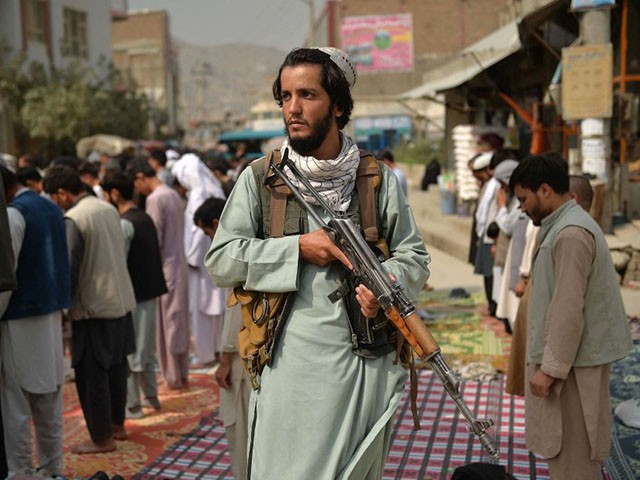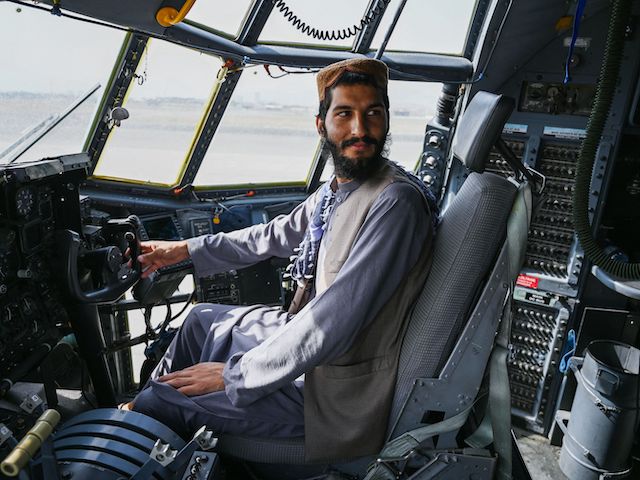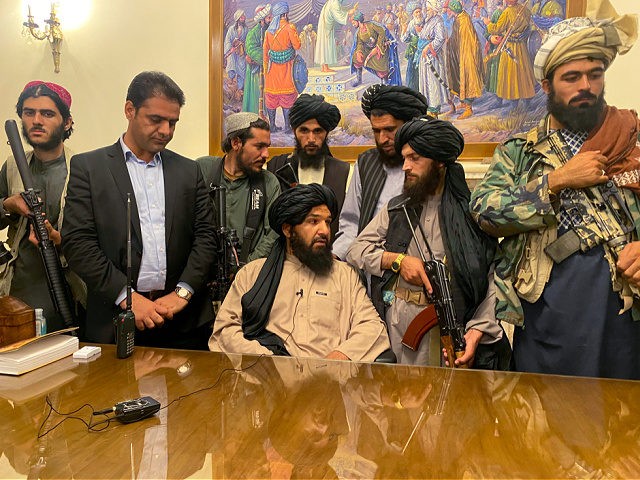Lt. Gen. Erik Kurilla — U.S. President Joe Biden’s nominee to oversee U.S. forces in the Middle East and Central Asia — “is floating the possibility of co-operating with the Taliban” in Afghanistan, the National, a U.A.E.-based newspaper, reported on Tuesday.
“In my personal opinion, there are pragmatic instances where we could come together going after [the Islamic State] based on the threat to the homeland,” Lt. Gen. Kurilla said in response to a question from Sen. Angus King (I-ME) during Kurilla’s nomination hearing before the U.S. Senate on February 8.
President Biden nominated Kurilla to head the U.S. Central Command (Centcom) in early January, which oversees Afghanistan operations.
“No senator expressed any objections to the nomination during Lt Gen Kurilla’s hearing, indicating he can likely expect a smooth Senate confirmation process before the current Centcom commander, Gen Kenneth ‘Frank’ McKenzie, leaves his post on April 1,” the National observed on February 8.
The Taliban terrorist organization is strutting and bragging that the Biden administration has agreed to provide aid to Afghanistan. https://t.co/5X1hHMUPTY
— Breitbart News (@BreitbartNews) October 12, 2021
The Islamic State Khorasan Province, or ISIS-K, is an affiliate of the Islamic State of Iraq and Syria (ISIS) active in South and Central Asia.
ISIS is an international Sunni jihadist terror organization. ISIS-K claimed responsibility for a suicide bombing of Kabul’s Hamid Karzai International Airport on August 26, 2021.
The attack killed 185 people, including 13 U.S. service members and an estimated 170 Afghan civilians. The Taliban, also a Sunni jihadist terror organization, claims not to support ISIS.

A Taliban fighter stands guard as Muslim devotees offer Friday noon prayers at the Aba Saleh Almahdi mosque in Dasht-e-Barchi in Kabul on October 1, 2021. ((HOSHANG HASHIMI/AFP via Getty Images)
The U.S. military, under the command of Gen. Kenneth McKenzie, attempted to retaliate against ISIS-K for the August 26, 2021, attack with its own drone strike in Kabul on August 29, 2021. The drone failed to hit any members of ISIS-K, as intended, and instead killed “as many as 10 civilians, including up to seven children,” Gen. McKenzie admitted on September 17, 2021.
The August 26, 2021, bombing of Kabul’s only international airport took place amid the backdrop of a chaotic mass exodus from the city by Afghan civilians and U.S. government-affiliated personnel. The Taliban deposed Kabul’s U.S.-backed government on August 15, 2021, prompting most of the city’s population to attempt to flee Afghanistan.

A Taliban fighter sits in the cockpit of an abandoned Afghan Air Force aircraft at the airport in Kabul on August 31, 2021.(Wakil Kohsar/AFP via Getty)
The Sunni fundamentalist Taliban has imposed sharia, or Islamic law, across Afghanistan since successfully prying Kabul from the hands of the U.S. government in mid-August following Washington’s nearly 20-year-long presence in the country.
The U.S. invaded Afghanistan in late 2001 and ejected the Taliban from the country’s seat of government in Kabul. The Taliban had ruled Afghanistan from 1996 to 2001 through a system of sharia.
“The Taliban … implemented criminal punishments [hudood in Arabic] in line with their strict interpretation of Islamic law, including public executions of people convicted of murderer or adultery by their judges, and amputations for those found guilty of theft,” Al Jazeera recalled in August 2021 of the group’s sharia rule from 1996 to 2001.

COMMENTS
Please let us know if you're having issues with commenting.